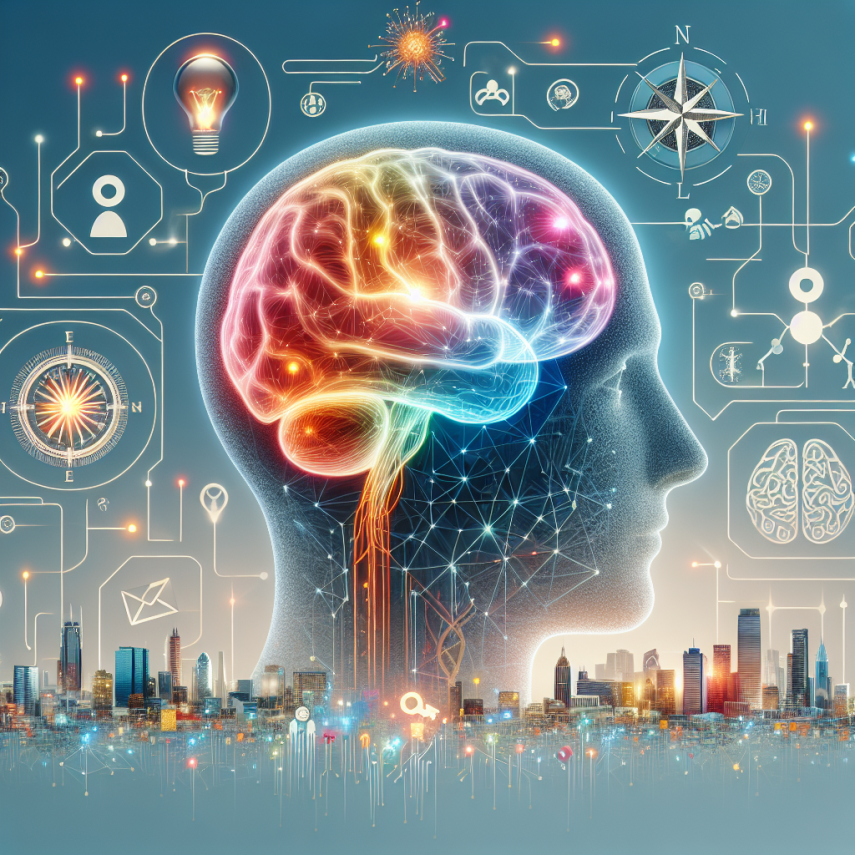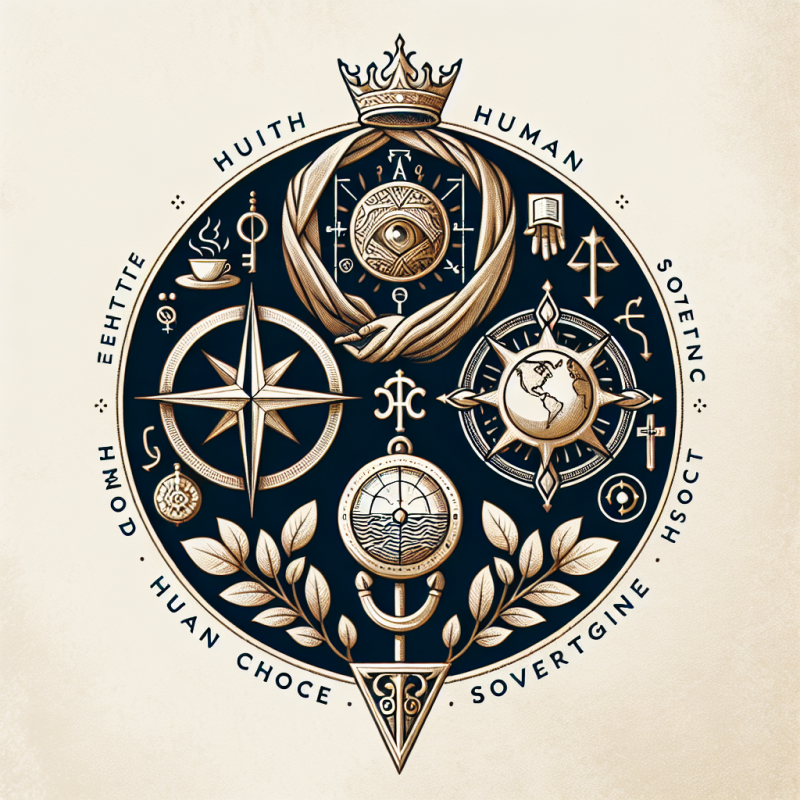“`html
Neuroscience and Modern Society: Challenges and Ethical Crossroads
In today’s rapidly advancing society, neuroscience has become a significant influencer in shaping how we understand ourselves and the world around us. From cognitive enhancements to moral responsibility, the field of neuroscience prompts complex ethical questions that could redefine the way we live. As someone who has often explored the intersection between science and faith, these advancements challenge me to think critically about their impact on human dignity and God’s design for humanity’s flourishing.
Understanding the Role of Neuroscientific Advancements
Neuroscientific breakthroughs have uncovered an array of possibilities in affecting human behavior, consciousness, and decision-making. But like any innovation, these advancements have both positive possibilities and profound risks. It is vital to consider the moral implications while navigating the landscape of neuroscience’s growing influence.
The Controversy of Cognitive Enhancements
One of the most significant advancements in neuroscience is the development and use of cognitive-enhancing drugs. Medications such as Ritalin and Adderall were designed to treat conditions like ADHD, but they are now widely used by individuals without medical conditions to increase their performance in competitive environments. While these drugs may offer temporary benefits, at what spiritual or ethical cost? Over-reliance on artificial enhancements may compromise the Biblical principles of stewardship and contentment in one’s God-given abilities.
Beyond cognitive enhancers, what about the possibility of moral enhancement? Medications designed to increase empathy or moral reasoning might promise a more compassionate society, but is artificially altering one’s moral compass truly ethical? Could such therapies strip away the God-given free will that distinguishes humanity? As Proverbs 4:23 reminds us, “Above all else, guard your heart, for everything you do flows from it”—a stark caution against tampering with the core of human morality.
Image: [1, Cognitive enhancement technological design]
Moral Responsibility and the Human Condition
The field of neuroscience is also reshaping how we think about moral and legal responsibility. For example, a deeper understanding of mental conditions—such as psychopathy or brain disorders—raises critical questions: Should we hold individuals with diminished capacity fully responsible for their actions? Neuroscience suggests that responsibility, much like consciousness, exists on a spectrum rather than as an absolute. This challenges traditional legal systems that operate on the binary of guilt or innocence.
Yet, as Christians, how do we reconcile this with the Biblical call for justice and mercy? Jesus consistently engaged with moral failures by balancing accountability with compassion (John 8:1–11). Applying a neuroscientific lens, perhaps society can learn to emulate this balance—to be firm in upholding justice while seeking to rehabilitate rather than ostracize.
The Slippery Slope of Defining Responsibility
A potential pitfall lies in determining where the line of responsibility begins and ends. For instance, if “my brain made me do it” becomes a common defense, how do we safeguard against an erosion of personal accountability? Romans 14:12 reminds us that “each of us will give an account of ourselves to God.” This accountability is not easily transferable to structural excuses, highlighting the need for vigilance in our approach to moral and legal rulings influenced by neuroscience.
Image: [2, Courtroom setting with neuroscience graphics]
Applications Beyond Law: Detecting Consciousness and Truth
One of the most groundbreaking applications of neuroscience lies in efforts to detect consciousness in individuals previously deemed vegetative. Studies suggest that up to 40% of patients diagnosed as being in a persistent vegetative state may retain some level of consciousness. This revelation is both hopeful and sobering. It forces society to reconsider questions of life and dignity.
The Christian worldview emphasizes the sanctity of life, grounding the belief that each person is formed in the image of God (Genesis 1:27). Neuroscience offers tools that align with this belief by allowing deeper insight into human consciousness, potentially saving lives that might otherwise have been overlooked.
Mind Detection and Privacy Concerns
While detecting consciousness is a promising development, other aspects of mind detection tread into contentious territory. Lie detection, memory reconstruction, and pain verification are all emerging capabilities. For example, lie detection using neuroscience is already being marketed to private individuals, such as spouses dealing with accusations of infidelity. These innovations could result in significant societal disruptions if privacy safeguards aren’t upheld.
Neuroscience also plays a role in refining truth claims in the legal and medical arenas. While predictive tools might pave the way for more accurate criminal assessments, the potential for misuse is enormous. Predicting future criminal behavior based on neuroscience could inadvertently reinforce societal biases or, worse, result in unjust imprisonment. In such cases, Micah 6:8 rings true: “What does the Lord require of you? To act justly and to love mercy and to walk humbly with your God.”
Video: [1, Neuroscience advancements and criminal justice applications]
Faith’s Role in Shaping Neuroscience Ethics
How do we, both as individuals and as a collective Christian community, engage with the promises and risks of neuroscience? The Bible calls us to exercise discernment, stand for truth, and protect the vulnerable. Faith must serve as a guiding light, ensuring that scientific progress honors God’s design for humanity and upholds ethical stewardship of His creation.
In previous discussions on how science and theology work together, I highlighted how both fields can offer complementary insights. Neuroscience, for all its complexities, doesn’t have to conflict with the moral frameworks provided by Scripture. Instead, it can deepen our understanding of the human experience while grounding us in humility before God’s unimaginable wisdom.
The Need for a Balanced Approach
As we stand on the edge of neural revolutions, we must proceed with caution and care. Quick adoption without ethical foresight risks unintended consequences that could harm both individuals and society. By balancing innovative technology with timeless Biblical wisdom, progress in neuroscience can become an asset, not a liability, to the human experience.
My own journey—intersecting technology, ethics, and faith—has taught me that the key lies in asking the right questions consistently: Does this breakthrough honor human dignity? Does it encourage justice? Does it reflect God’s command to love one another? These are the questions that must guide us.
Image: [3, Symbolic balance scale illustrating ethics and science]
Conclusion
Neuroscience offers a profound potential to impact society, from reshaping criminal justice to redefining moral responsibility. However, its applications must be thoughtfully examined to ensure they align with ethical, spiritual, and societal values. As Christians, we are uniquely positioned to provide a moral compass, ensuring that technological advancements serve their purpose without overshadowing the sanctity of life and free will.
Faith and science are not adversaries but partners, each offering insights into God’s creation. By embracing this partnership, we can navigate the challenges and opportunities neuroscience presents, fostering an era of innovation that glorifies God and upholds the inherent worth of every human soul.
Focus Keyphrase: Neuroscience and Society
“`




Thank you for reading! I wrote this article to share my thoughts and insights. I’d love to hear your feedback and discuss further in the comments!
This was a helpful read. Looking forward to more content like this!